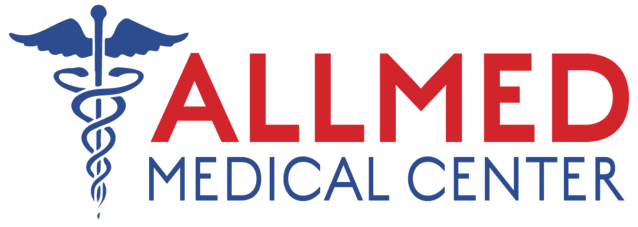All You Need to Know About GERD and Acid Reflux

Have you ever had burning sensations in your chest during the middle of the night or as you're about to go to sleep? Do you find yourself heading off to one of your kitchen cabinets to grab some medicine to help alleviate the pain? If yes, then you may be experiencing acid reflux or GERD (gastroesophageal reflux disease).
Acid reflux affects many people to varying degrees. In fact, millions of Americans suffer from these conditions every day. If you have GERD, it's essential to understand what triggers your symptoms and how to manage them. In this blog post, we'll discuss the causes of GERD, symptoms and methods for treating and preventing it.
Are GERD, Acid Reflux, and Heartburn the Same Thing?
The terms heartburn, acid reflux and GERD (gastroesophageal reflux disease) are frequently used interchangeably. Although closely related, they somehow differ. Acid reflux is a common health issue that manifests in varying degrees of severity, from moderate to severe. On the other hand, GERD refers to a severe form of acid reflux that is chronic. Meanwhile, heartburn or a burning sensation in the chest or abdomen is a symptom of acid reflux and GERD.
GERD and Acid Reflux
When the esophageal sphincter does not close properly, stomach acids may move up into the esophagus (reflux), causing a burning sensation in the lower chest or behind the breastbone. This is known as acid reflux.
To allow food from the esophagus to enter the stomach, a muscle at the bottom of the esophagus opens. That same muscle closes to keep food inside the stomach. We refer to it as the lower esophageal sphincter (LES). Acid backs up into your esophagus when the LES relaxes too frequently or for a prolonged time.
Acid reflux can sometimes progress to GERD (gastroesophageal reflux disease), a chronic reflux condition marked by frequent heartburn and other symptoms two times a week or more. While it is normal for adults to experience occasional reflux symptoms, such as heartburn or indigestion, GERD can be more severe and frequent. An accurate diagnosis is essential to avoid long-term complications and relieve discomfort caused by the condition.
Long-Term Complications of GERD
GERD can cause complications if left untreated. Some of which are listed below.
- Dental issues: Acid reflux often causes the enamel of the teeth to erode over time.
- Problems with the lungs and throat: Stomach acid backing up into the throat can lead to sore throats, hoarseness, or inflammation of the vocal cords. Acid can also cause pneumonia and asthma symptoms when inhaled into the lungs.
- Esophageal stricture: Damage to the esophagus from acid can cause it to scar and narrow, resulting in a blockage that makes it difficult to swallow—the narrowing results from scar tissue left behind by ulcers that repeatedly damage and heal in the esophagus.
- Erosive esophagitis: A condition marked by esophageal swelling, irritation, or inflammation. This occurs when stomach acids erode the esophagus, leading to ulcers that can bleed.
- Barrett's esophagus: This condition happens when the flat pink lining of the esophagus is damaged by acid reflux, which thickens and becomes red, resembling the lining of the intestines. In some cases, Barrett's esophagus can develop into esophageal cancer.
What are the Causes of Acid Reflux?
A hiatal hernia is an abnormality of the stomach that can cause acid to flow up into your esophagus, leading to acid reflux symptoms. Here, the upper part of your stomach extends or protrudes through the diaphragm, a muscular valve between your stomach and chest. In some cases, hiatal hernias may develop due to persistent coughing, vomiting, strenuous activity, and sudden physical exertion.
There are other causes of GERD. It can affect anyone, although some may be more likely to develop it than others. You may be at higher risk of acid reflux if you are
- Overweight or obese
- Part of the older age group / Seniors
- Snacking before bedtime
- Pregnant
- Smoking regularly or are frequently exposed to secondhand smoke
- Eating large amounts of food
- Lying down within a short time after eating
- Taking certain muscle relaxants, pain relievers, sedatives, antidepressants or blood pressure medication
For people with GERD, certain foods and drinks trigger symptoms or worsen symptoms. Some of the foods and beverages associated with symptoms include
- Acidic foods, like citrus fruits and tomatoes
- Caffeine found in tea and coffee
- Carbonated beverages
- Spicy foods
- Fried Foods
- Peppermint
- Chocolate
- Alcoholic beverages
GERD Symptoms
To avoid long-term complications, it's crucial to treat GERD as soon as possible. It begins by identifying its symptoms, such as:
- Heartburn, especially at night or after eating
- Acid regurgitation in the throat
- Dry cough particularly persistent at night
- Wheezing
- Hoarseness
- Tightness in throat
- Trouble swallowing
- Sudden increase of saliva
- Vomiting
- Bitter taste in the mouth
- Stomach bloating and nausea
- A feeling of a lump in your throat
- Sleep disruptions
When you have chest pain, especially if it is accompanied by shortness of breath, pain in your jaw or arm, seek medical care immediately. These symptoms may indicate a heart attack.
Prevention and Treatment Options for GERD and Acid Reflux
GERD is ordinarily manageable through lifestyle modifications and over-the-counter medications. But in some cases, it may require stronger medicine or surgery to relieve symptoms. Here are the different ways to treat and prevent this condition.
Lifestyle Changes for GERD Relief
- Changes in your diet can significantly reduce acid reflux and prevent you from seeking other treatments. A balanced diet that consists of vegetables, fruits, lean proteins, complex carbohydrates and healthy fats is the best option. For fruits, try to limit citrus fruits and juice. Also, avoid foods that trigger symptoms of acid reflux.
- Obtain a healthier weight through diet and exercise. Acid can regurgitate into the esophagus if abdominal weight puts pressure on the stomach.
- Sleeping inclined might be helpful. Elevating your head and chest above your waist is important, so stomach acid doesn't reach your throat.
- Do not lie down immediately after eating. You should wait at least two hours as your lower esophageal sphincter is put under additional pressure when you lie down with a full stomach.
- Avoid midnight snacks or eating within 3 to 4 hours of going to bed.
- Stop smoking and limit alcohol consumption.
- Eat smaller meals throughout the day instead of larger ones
- It is best to wear loose-fitting clothing to avoid unnecessary pressure on the abdomen.
Medications and Surgery to Treat GERD
Prescription and over-the-counter medicines can help treat acid reflux. Ideally, you should take them with food or soon after eating since that's when heartburn usually occurs. Additionally, taking them with food may prolong their effect. Medication for acid reflux and GERD include:
- Antacid: Over-the-counter (OTC) medications to relieve mild heartburn
- Proton pump inhibitors (PPIs): help lower stomach acid levels
- H2 blockers: which reduce stomach acid levels and help repair the lining of the esophagus
GERD can generally be treated with lifestyle changes and medications in most cases, which limits the need for surgical intervention. Nevertheless, it may be an option for some people with severe symptoms who cannot control them or do not wish to take medication.
- Nissen fundoplication: A laparoscopic surgery where a surgeon reinforces the lower esophageal muscles by wrapping the top of the stomach around it. As a result, your esophagus will receive less pressure, reducing reflux.
- LINX procedure: Linx is a ring containing titanium beads. The surgical procedure involves wrapping a ring around the area between the stomach and the esophagus. Because of the beads' magnetic attraction, their opening remains closed. As a result, acid does not back up into your throat.
Notes:
*For pregnant women who suffer from frequent acid reflux, you should always consult your doctor before taking any over-the-counter medication.
*Due to unsafe amounts of N-Nitrosodimethylamine, a potential carcinogen, the Food and Drug Administration (FDA) mandated manufacturers withdraw all types of ranitidine (Zantac), an H2 blocker, from the market in 2020.
Get Control of GERD!
We hope that the information in this blog will help you better manage your condition. If you are experiencing prolonged symptoms of acid reflux, you should seek a formal diagnosis so you can receive appropriate treatment and medical advice. For consultations, get in touch with AllMed Medical Center today! Call 1-833-255-6332 to schedule an appointment online.
AllMed Medical CentersServing
Greater Sacramento
Allmed Medical Center | All Rights Reserved.









